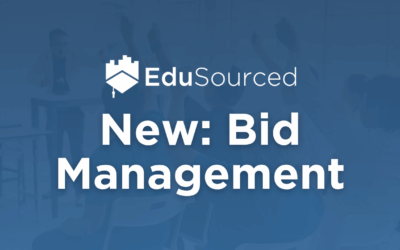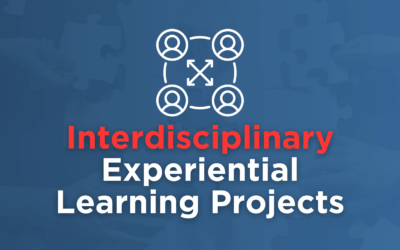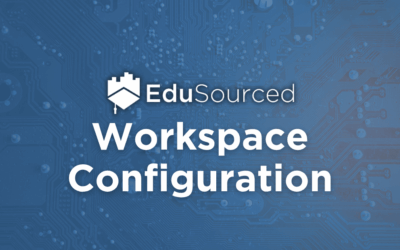Thinking about creating an Experiential Learning Program to incorporate client-based experiential projects into your curriculum?
These programs allow your students to gain valuable project-based experiences within their desired industries. Client-based experiential projects help everyone involved: the university, the students, and the clients. Yet, creating an experiential learning program from scratch can seem overwhelming. At the risk of oversimplifying, below are five steps to develop and launch a new client-based experiential program.
-
- Find a champion.
Are any faculty already implementing client-based projects into their courses? If so, this existing one-off program can be a great foundation for creating an experiential learning program. Talk to the faculty member to understand how they are currently sourcing projects from clients and how student success is measured with these projects. Understanding the sourcing, matching, and measurement process and pros and cons of the current model will give you a foundation to use as you think about how an experiential program can be scaled up for an entire department, or even university.
- Find a champion.
-
- Test an extracurricular program first.
It may be easier to launch an extra-curricular program and incorporate experiential into your curriculum after it has been validated at your school. You could designate a faculty member with a passion for experiential projects to run the extracurricular program or employee an industry professional as a contractor or consultant to manage the program. Once the program has successfully completed a batch of projects (more on defining and measuring success later), getting university approval to integrate into the course curriculum becomes that much easier.
- Test an extracurricular program first.
-
- Start small.
Creating a selective experiential program with a formal application and review process for students will allow you to identify and select top students as your initial talent pool for an industry-facing program. Leveraging students who you are confident will provide great work makes the program a much easier sell to companies, and will incentivize the companies to provide more complex, high-yield projects to your student teams. - Help your students get hired.
By focusing on companies who are already recruiting your students and have existing relationships with your university as initial client targets, you’ll likely have more receptive ears. These companies are already dedicating time and money toward recruiting your students for internship and full-time employment opportunities. This is a unique opportunity to access top talent at your school and to increase their own brand awareness on campus as a sponsor of an experiential learning project. Larger companies often pay a fee to sponsor these projects, with the average fee for a graduate level project of $9,800, based on a survey of 40 schools.
- Start small.
- Measure impact.
Measuring the impact of your experiential programs on both the clients and your students will help you tell the story and share the benefits of such programs to future paying customers and stakeholders at your university.EduSourced developed a client survey and student skills inventory assessment designed to measure the impact of the project on your students and clients.You can do this on your own with an online survey tool asking students to self-assess their skills both before and after the project. A similar survey can be used for clients, we suggest giving adding a field for comments as these quotes can be high impact when recruiting future projects. Asking your clients to quantify how much the project would have cost them if they’d used an external vendor or FTEs is another great metric to help sell the program to business clients.
Many of the schools we encounter that are evaluating creating an experiential learning program for the first time find the task overwhelming. We recommend starting with a scaled-down, measureable approach and enlisting one or two passionate faculty members to get started.
This type of program will help set you apart from your collegiate competition, will enhance the value of your degree programs for your students, and can even serve as an additional revenue source for your department through client-sponsored projects. EduSourced is committed to helping our university partners’ experiential programs succeed. Access our webinar series on best practices where we highlight various schools and their experiential programs here.



